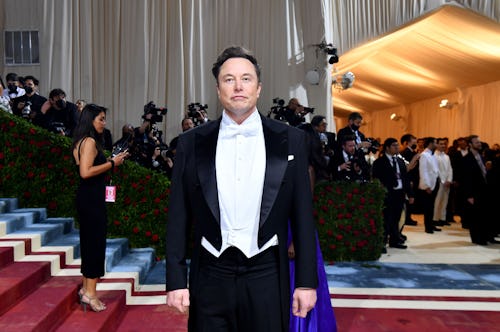
It didn’t seem possible, but somehow the interminable battle between the world’s richest man and the world’s most addictive social media platform has gotten even dumber than the already stratospheric levels of stupidity reached the last time we checked in to comment on how ridiculous this whole thing has become.
In a scorching court filing submitted this week, Twitter executives meticulously deconstructed Musk’s various excuses to wriggle his way out of buying the company, calling the Tesla owner’s farfetched narrative that he’d been somehow duped during the purchase “as implausible and contrary to fact as it sounds.”
Per Twitter, Musk’s claims that he wanted to back out of the agreed-upon deal over concerns about Twitter’s proliferation of bots, and the number of actual users on site were actually invented to cover the fact that he “no longer found [the purchase] attractive once the stock market—and along with it, his massive personal wealth—declined in value.”
As Musks lawyers claimed in their own court filing last month, “the core dispute over false and spam accounts is fundamental to Twitter’s value.” Accordingly, they’ve insisted at various points in this whole saga that Twitter had misrepresented the number of bots on the site and sent confusing or overwhelming data to Musk in order to obfuscate the problem. As Twitter noted in its filing, however (and I’m paraphrasing here): nuh-uh.
In perhaps the most cringeworthy part of the entire 127-page document, Twitter notes that Musk’s tentpole excuse for wanting to get out of the deal (that — per his own research — more than 10% of the site’s users are bots) is fundamentally predicated on some, uh, lousy methodology [emphasis mine]:
He asserts that his own analysis, using a publicly available website, indicates that false or spam accounts constitute at least 10% of Twitter’s monetizable daily active users. But that claim is untenable on its face, because Musk is not measuring the same thing as Twitter or even using the same data as Twitter. Musk can produce a higher estimate only by running a data set neither limited to nor inclusive of mDAU through a generic web tool that designated his own Twitter account a likely “bot.” The result is a distortion that Musk is hoping will nonetheless make waves.
Oopsie!
Elsewhere in the filing, Twitter’s lawyers point out that Musk’s claims that he hadn’t been given access to key usage data were patently false, considering that, at one point, the company had specifically held an informational call about those very metrics which, they note, “Musk himself declined to attend.”
It goes on like this for pages, and pages, each of which serves to wryly — if unambiguously — underscore the company’s larger point: that faced with declining finances and suddenly realizing he’d stumbled himself into a fairly straightforward, ironclad contract to buy the company, Musk has spent months scrambling to invent excuses for why he should be allowed to back out now, to no avail.
At this point, Musk and Twitter are set to meet in the Delaware Court of Chancery this coming October. And if I were Musk, I would probably take the intervening few months to ask myself “wait, am I a bot?” and then, if for no other reason than to spare us, and himself, further embarrassment, I’d simply log immediately off.







